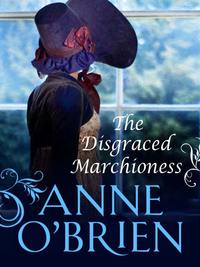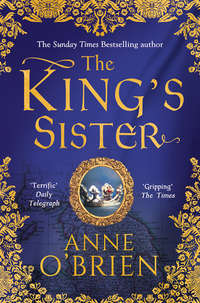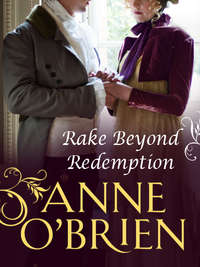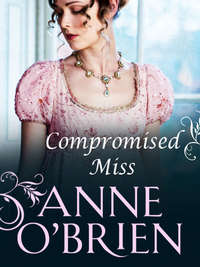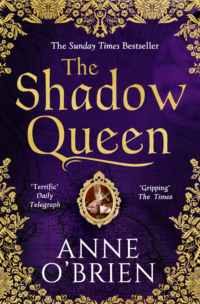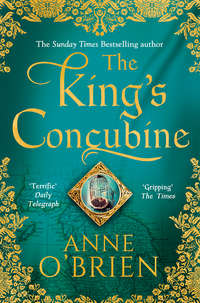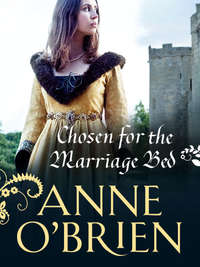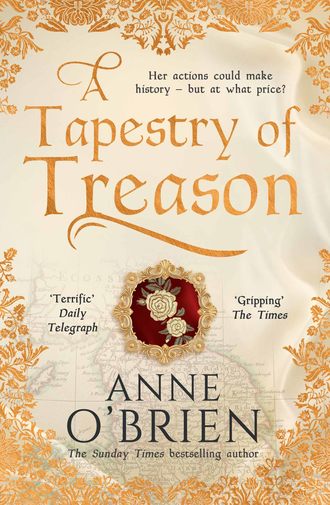
Полная версия
A Tapestry of Treason
‘And what was the outcome?’ I took a low stool at his feet and sipped.
The damask rippled in a shrug. ‘York agreed to let Lancaster proceed against Richard. And by doing that he sealed Richard’s fate.’
I watched him, absorbing the underlying anger which in effect matched my own. Beneath the brutal self-seeking that governed his every action was a man of some ability, acting as one of Richard’s trusted lieutenants in Ireland. At Court he had been one of Richard’s close coterie of friends. Now his past loyalties had put him in danger; his whole future could be in doubt unless he was clever enough to extricate himself from the coming conflict of Lancaster against Richard. From Lancaster’s inevitable victory.
My future would be in doubt too.
‘So you are saying that all we can do is wait.’ I was becoming as repetitive as a well-trained popinjay.
‘But we will use the waiting well, and make plans.’ Thomas leaned forward. ‘Are you going to welcome me home?’ His hand closed around my wrist to pull me to my knees, close enough to plant a kiss on my lips, a possessive gesture rather than an affectionate one. ‘I could have died in Ireland. Did it cross your devious Yorkist mind that today you might be a widow?’
I was well used to retaliation. ‘Yes, it did. But you obviously survived to return to my welcoming arms.’
‘Would it have been a blessing if I had fallen into an Irish bog?’
I considered his polished presence. ‘There are no signs of battle on you. Did you actually fight?’
‘Do you brand me a coward?’
I did not flinch from his regard. No, I would never so condemn him. Lacking courage he was not. Thomas had been given command of the rearguard of Richard’s army. And not only was he capable with sword and lance, but he had proved to be equally skilled in negotiation. He had been sent to bring the King of Leinster to terms. It had not been his fault that he had failed, so I understood.
‘Would I openly brand the father of my children as coward?’ I replied in all fairness. ‘Don’t judge me. I don’t wish your death, Thomas. It would not suit me to be a widow, nor our children to be left fatherless.’
‘Your dower would keep you, as a widow, in silk under-tunics.’
‘So it would. My dower has kept you in well-bred horseflesh,’ I responded in similar style for the value of my father’s gift to my husband had been a prime attraction from the moment our marriage contract was signed. I was a woman of affluence and worth a marriage, with estates and castles in Glamorgan as well as scattered throughout England. I knew my value, as did Thomas.
Yet he was clearly feeling aggrieved. ‘If I were dead on a battlefield, you could wed again, a knight of your own choice.’
‘My father might have something to say about that. And better the devil you know…’ I smiled at his grimace, twisted my wrist from his grip and sat back on my heels. ‘Tell me: what have you been doing since the Irish campaign came to so abrupt an end? I presume you fought with your usual panache?’
‘Of course.’ Preening came second nature to him. ‘I returned with Richard – although what your brother Aumale was thinking in dripping poisonous advice into Richard’s ear… Doubtless he’ll have some good reason. He always does. And I’ll wager it smacks of some outrageous scheming.’
My ears pricked up at my brother’s involvement in something nefarious.
‘What did Edward do?’
Thomas was not inclined to be informative; his smile was feral. ‘Oh, he’ll tell you himself, full of self-vindication which no one will believe. As for what I did – Richard sent me to rally the men from my estates in Glamorgan. They refused.’
The crease in his handsome brow suggested some unfortunate clash of will, which he had lost.
‘How hard did you try?’ I asked, giving no quarter since he had been unwise enough to suggest that I might wish him dead.
‘Hard enough to know there was no moving them.’
Which did not surprise me. Thomas had no interest in estate management and made no effort to win the goodwill of his people through fair husbandry. I considered the jewels on his hands, the gilded leather of his soft boots. All he did was rake money from the rents for his pleasure. He took with one hand, then took again with the other. His tenants despised him, and if I were in their worn shoes, I would have refused to march north for him. What was the point in abandoning the harvest, with possible death on a battlefield as the only incentive, for a lord who had no thought for their well-being?
Thomas must have seen the derision in my gaze before I could hide it.
‘Oh, I tried, whatever your opinion of me might be. I know as well as you where our interests lie and a small force of our tenants rallying to Richard might have made a difference. But then Richard abandoned his army at Carmarthen and fled north, so it would have made no difference at all.’
‘And you fled with him.’
‘Yes. I did.’
I frowned, taking the empty cup from him, handing him mine which was almost untouched. ‘And so?’ I enquired.
Thomas’s voice was as flat as a boned herring. ‘I left Glamorgan to return to fight for Richard but I was taken into custody with him at Conwy. God rot those cold and draughty Welsh castles! There were eight of us. Richard asked for guarantees of our safety from the Earl of Northumberland, who has thrown in his lot and his Percy troops with Lancaster, which to my mind makes Lancaster invincible.’
‘So your life was never in danger.’ I did not wait for a reply. ‘You changed sides. You abandoned Richard and gave your allegiance to Henry of Lancaster.’
At that moment I disliked him more than I had ever done in my life. He had been my husband since I was four years of age. I did not like him then; I liked him far less now.
‘I did. I’ll not lie to you.’ His eyes narrowed in some bitter memory. ‘The cause was lost by the time Richard was taken from Conwy to Flint under restraint. The Holland Dukes of Exeter and Surrey had tried to negotiate with Henry, but they had already relinquished their freedom. What value would there be for me – for us – in my remaining at Richard’s side to join your Holland cousins under lock and key? If I had, I’d be locked in the Tower with Richard now. Is that what you would have me do?’
I shook my head. In truth that would not have been to our advantage. Nor to Richard’s. If there was any hope of his rescue, he needed his friends with freedom to conspire, not comrades sharing his incarceration. Moreover I understood the ambition that drove Thomas. To stand with Richard at the eleventh hour, without an army, without friends, faced with the overwhelming power of the Percy retainers, would have been politically inept and personally destructive. But I suspected that there was little compassion in Thomas’s planning for Richard. Thomas would do whatever would best suit his vision of Despenser aggrandisement.
‘What do you suggest that we do now?’ I asked with the sweetness of autumn honey. ‘You know that I dislike sitting on my hands when all is to fight for.’
For the first time in our exchange of hostilities Thomas laughed, although the edge was plain enough. ‘Thank God He never put a sword into your hand and sent you out onto a battlefield!’ But the laughter died. ‘I don’t think we have any choice in the matter. The momentum is against us. Lancaster is proving to be a driving force with an iron will to batter all into submission.’
‘But what we don’t know, of course, is whether Lancaster will accept your change of heart.’
‘No, we do not. And I dislike the possibilities if he decides that we are too much of a threat to his plans, whatever they might be. He executed the rebels who stood against him at Bristol fast enough. So we must keep our heads below the parapet.’
‘As long as we have heads to protect.’
His glance was sharp. ‘What we have to ask ourselves is – what is Lancaster’s intention towards Richard? Does he want him alive or dead?’
I saw the cold judgement in his face, heard it in his voice. Would he actually care, as long as his own neck was safe? Ambition aside, I hoped that I cared.
‘Do you actually like Richard?’ I asked, without thinking.
‘Like him?’
‘You have lived in his palaces, eaten the food provided by him, worn the clothes and jewels he has given as gifts, enjoyed the patronage and the title of Duke of Gloucester. You have enjoyed Richard’s recognition of your family and its reinstatement after the Despenser treasons of the past. You have been grateful to him. But do you like him?’
‘Does it matter? I swore my oath of loyalty to him.’
‘That is not at all the same thing.’
He considered, prepared to answer my question after all. ‘Like is too innocuous a word. Yes, I am grateful. Without this upheaval I would have remained loyal to him. But I don’t trust him, if that’s what you mean.’ And I thought that for once I could accept Thomas’s honesty, for there was no one here for him to impress except myself. ‘He is fickle. He can turn against his friends as quickly as he can turn against his enemies. Any man foolish enough to make an enemy of Richard might risk the kiss of an axe against his neck.’
We all knew it well. When Richard was still young and untried as a monarch, giving power and patronage to unsuitable favourites, a group of magnates had taken issue with him. His favourite, de Vere, was beaten on the battlefield and hounded into exile. Richard was forced against his will to promise to take advice from those who knew better. Thus the Lords Appellant had become a force to be reckoned with.
But Richard would not accept this curb rein on him for ever. Three years ago now, he had taken his revenge on those five Lords. His uncle Thomas of Woodstock had been smothered in his bed in Calais. The Earl of Arundel had been executed on Tower Hill, the Earl of Warwick imprisoned. The Earl of Nottingham had been banished for life. And Cousin Henry, then Earl of Hereford, the youngest of the Appellants, had been banished for a treason he had probably not committed. We all recognised that Richard had a vengeful spirit.
‘He carries grudges. He is self-absorbed in his own powers. No, I do not like him. I do not trust him.’ Thomas finished off the cup of wine. ‘Now we have to see what happens with the disposition of the crown, since it has been snatched from Richard’s fair head. We will act accordingly. I will not willingly give up what I have achieved.’
He tightened his hand into my hair, curling his wrist into its thickness, and bestowed another kiss, harder, surer.
‘The question is, my lovely, ambitious Constance. Do you stand with me or against me?’
My loyalties to my family were strong, yet I would stand or fall with my married Despenser fate. Indeed, were they not so completely intertwined, as Thomas’s hand in my hair, that there was no need to make a choice? York, Holland and Despenser would fight as one to keep their pre-eminence, whoever was King, be it Richard or Henry.
‘With you, Thomas. Are you not my devoted husband?’
His kiss deepened. His hands tightened on my shoulders.
‘Then show me.’
‘Do I not always?’
‘No. Of course you do not.’ His hands slid to encircle my wrists and he pressed his mouth against the soft skin there, where my pulse beat, slow and unaroused. ‘I missed you.’
‘Which I do not believe.’
‘If only for your sharp tongue.’ His eyes softened, warning me of his change of mood. ‘But not only that.’ He lifted the ivory-backed mirror from the coffer at my side. ‘What do you see?’ He held it before my face. ‘What do you see, my lovely Constance?’
‘What should I see?’ I asked, determined not to respond to his cold-blooded wooing.
‘I’ll tell you.’ The curve of his lips became sardonic, his chin tilted, as he surveyed me. ‘I see a profusion of hair as fair as that of any angel painted in a missal, a face which is a perfection of shape and fine bones. Eyes lustrous enough to entrap any heedless man. A straight nose, lips indented at this moment with displeasure, an unhandsome crease between elegant brows.’ Thomas stroked the brows with the tip of one finger. ‘Is that sufficient to express my heart-felt admiration?’
‘How unexpectedly chivalrous,’ I observed as the crease became deeper and thus even less handsome.
‘Smile, Constance.’
Obedient to his command, I smiled, knowing that my face would be lit as if with an inner light, even though it was a mockery.
‘If your unholy mother gave you nothing beyond a love of duplicity, at least you inherited the handsomeness of your Castilian forbears. Why should I not miss you? A lovely woman at his side is a gift of value to a man of ambition.’
The mirror was cast aside regardless of its fragility. His chaperon and gloves were abandoned where I had left them on the floor, the damask garment shrugged off to join them, while I was efficiently dutiful if not enthusiastic as he led me into the inner chamber where the great bed with its Despenser hangings, all sumptuous gold fretwork on a red field, dominated the space. I knew the words to say, the caresses to give. I knew what duty meant within a loveless marriage. We had a son and a daughter, healthy evidence of my wifely attention. I gave him ease and obedience. If he wanted ecstasy he could employ one of the Court whores and pay her well in coin and compliments. He paid me in neither and awoke no desire in me. Nor did I expect it. I would live out my life with no experience of love, be it the soft caring gestures within a family or the blazing passion of lust. Life, I accepted, would be far more equable without. My mother had felt the hot breath of such a lust, with raw repercussions when she took a lover. I would never follow in her scandalous footprints. Political aspiration for my family would serve me well enough.
Thomas fell asleep at my side with no more than a grunt of exhaustion while I lay awake and considered the dangers in which we found ourselves. For what was treason? Treason depended on whose brow bore the crown. At the moment it seemed that the crown of England lay in the gutter.
And then as I fell into sleep, I wondered what was the advice that Edward, in Ireland, had given Richard which had awakened Thomas’s suspicions. I sighed a little. Whatever it was that Edward had set his hand to must wait.
From where had my enmity to my husband stemmed? It had always been there. I had never found anything to like in Thomas, Lord Despenser, as he had been titled since the day I had wed him at the age of four years. There were some elements of that event that clung to my mind, to make a lasting impression on the woman I was to become. I was told what to say during the ceremony and spoke the words, although I did not understand the questions asked of me by the priest. The boy of six years at my side, gloomy-faced, without a glance in my direction, said the same. We were word perfect, and there was much indulgent laughter when our hands were joined and the boy was instructed to kiss my cheek, which he did, a peck worthy of a cock pheasant.
I was his wife, I was given to understand. I looked at him with some interest, for he was a handsome boy. He looked at me, fleetingly, as if he would rather I had been the gift of a new hawk or hound. I don’t think that he looked at me again, except when I asked him:
‘Where is your father? Is he not here?’
‘My father is dead,’ he said.
‘I am sorry.’
‘I don’t need your sorrow.’ His lips twisted. ‘I don’t like you. I am here because my mother commands that I must wed you.’
The only words we exchanged on that auspicious occasion. I would never forget his utter lack of interest in me, not that I would ever allow him, then when I was a child, or in later years when it mattered more to me, to see how much his indifference had wounded both my pride and my desire to be liked by this boy to whom I was tied by oaths and religious ceremony. Nor could I forget the overheard heat of ill temper between my father and mother as we sat at the culmination of the feast.
‘Could we not have done better than this?’ my mother asked under cover of a ceremonial blast of a trumpet as King Richard arrived late, but still to grace us with his presence.
‘The lad is a ward of the King. How much better do you want?’ My father was trenchant.
‘Despenser! His family is mired in past scandals. There are still treason judgements against his ancestors for corruption and misplaced ambitions. Are we not worth a more advantageous alliance?’
My mother’s voice was still heavily accented from her Castilian birth, but her words were clear to those who eavesdropped, as I did while I washed my hands in a silver bowl.
‘Your mother was a whore,’ my father said. ‘Before your father made her respectable and married her. How much scandal do you lay claim to, Isabella?’
It meant little beyond the shock of his use of that word in polite company.
‘But a royal whore, and to your advantage. You only wed me because of my royal Castilian blood.’
There was no love lost between them.
‘I wed you, Isabella, because my father the King insisted on it and for no other reason,’ was the brusque reply. ‘Both Castilian heiresses married to two of his sons. As my wife, no one can use you to make a claim against your sister Constanza, who as the elder has the claim to the Castilian throne. If anyone will be King of Castile it will be my brother John of Lancaster who had the privilege of wedding her. I will not challenge him.’
This was not new to me, that my uncle John of Lancaster hoped to lay hands on the Kingdom of Castile for himself in his wife Constanza’s name, although then, in my childhood, it was beyond my true understanding. My mother and her sister were the heiresses of King Pedro of Castile, recently stabbed to death by his half-brother Enrique of Trastámara. Through their blood ran the claim to the kingdom even if their mother Maria de Padilla had been Pedro’s mistress, her secret marriage to Pedro repudiated in favour of a more well-connected legitimate bride. Thus the legitimacy of the two girls was open to dispute, but my mother was a woman of some importance, particularly in her own mind.
‘You have water in your veins,’ she announced to anyone who wished to hear. ‘I would have liked you better if you had refused me.’
They detested each other.
My mother caught me, now patting my fingers dry on a length of fair linen, at the same time watching and listening.
‘Go and sit with your husband.’
Thomas was engaged in fighting imaginary battles or tilting at famous opponents, in company with some of my cousins. He had not turned his head in my direction for the whole of that interminable feast.
‘He has no interest in me, madam,’ I said.
She leaned and whispered, lips thin: ‘You will do well to make him have an interest in you, child.’
‘Why, madam?’
‘Don’t question everything, Constance.’ She was always impatient. ‘You’ll learn soon enough. Just do it.’
But how to achieve the impossible? Thomas Despenser regarded me as a possession to stamp respectability on his name.
‘What does mired in scandal mean?’ I asked my brother Edward, for with two more years than I, he would surely know.
He wrinkled his nose. ‘Nothing good, I’d say.’
So I asked my nurse.
‘Nothing you will ever be accused of, Constance. You will be the perfect daughter. The most acclaimed wife. Look how pretty you are. And how pretty your young husband is.’
‘Will I see him again?’
‘When you are a young woman grown.’
‘When will that be?’
‘When you have reached your fourteenth year.’
It seemed an age away. ‘I don’t think he will miss me.’
‘No, I don’t think he will.’
‘It doesn’t matter, does it?’
‘No. You are royal, my child. And he is not.’
‘Will he like me?’
‘It matters not whether he does or does not.’
It was an unsettling day after which I returned to my life of prayer and learning and skills appropriate to a daughter of Edmund, Earl of Cambridge, fourth son of the old King Edward the Third and soon to become Duke of York. My parents returned to their own interests which, with deliberate intent, did not often bring them into each other’s company, nor into that of their children. We had no memory of maternal love during our childhood years. If we had, it might be that we would have become a less rancorous brood.
As for Thomas Despenser, Lord Despenser, I had wanted more than the hostility that sparked between my father and mother, whether he was worthy of me or not. It was not to be. I might have loved him. I might have experienced at least an affection for him, but Thomas admired my dowry and my Plantagenet blood far more than he admired me, and for the most part ignored me except for the need to produce an heir. In the end, it did not matter. We were man and wife and, as many another ill-matched pair, we would live out our days together.
Chapter Three

Early September 1399: Tower of London
‘Where is Mathes?’ King Richard demanded as soon as I set foot within the confines of his room. ‘What have you done with Mathes?’
‘Who?’ For a moment I was nonplussed. Of all the opening commands or pleas I might have expected from Richard, this was not one of them.
‘Mathes. My greyhound. I wish him to be here with me. Where is he?’
‘I don’t know, my lord.’
It seemed to me that there was far more serious content for this discussion between us than the whereabouts of Richard’s favourite greyhound.
‘Bring him to me. I command it.’
But how could I?
I had awoken that morning, Thomas long gone on his own affairs, with one clear thought leaping fully fledged into my mind. I must go to Richard. Waiting for Henry of Lancaster to show us the length and breadth of his ultimate goal toward Richard and the kingdom was all very well, but I could not rest. The one memory I could not shake free from my mind was that of Richard standing in the Great Hall, alone, isolated, even though he was surrounded by my father’s retainers. It had touched my heart with a deep compassion of which I had thought myself incapable. I could not abandon my cousin.
Richard commanded our duty and our loyalty. He was our King, anointed with holy oil, crowned and invested with the sacred regalia of kingship. Casting off such a loyalty was not a simple matter. Nor, for me, was it only a matter of loyalty to my King. Thomas would not understand, but Richard was my cousin. I had known him from birth, enjoyed his hospitality and his patronage, but also his kindness, which had not been merely an extension of his power. Were we not close by blood?
I recalled him drawing me into the intimate circle around his first much-loved wife Anne. I had clear memory of his dancing with me when my steps were still unsure. A collector of fine jewels, he had given me the heraldic brooch of a white hart, bound with gold and rubies, that I pinned to my bodice every morning.
With no need to inform anyone of my movements, for the Countess of Gloucester was beyond criticism, I arranged to travel by river from Westminster to the Tower in my father’s barge. Enjoying the luxury of the scarlet-cushioned seats with their gold-embroidered lions, I made good time for the tide had just turned, the strengthening current aiding the oarsmen. Once there, entering by the Watergate, I acknowledged, as I often did, that the bulk of the Conqueror’s White Tower would intimidate any visitor, its shadow causing me to shiver despite the warmth of the autumn sun reflecting from the stonework.
There was an immediate obstacle to my plan, all six feet of him standing in my path before I had barely stepped beyond the wharf. Will Plimpton, knight, my father’s Captain of the Guard. He had known me since I was a child and still had the habit of addressing me as he had when I held no status other than my father’s daughter.


